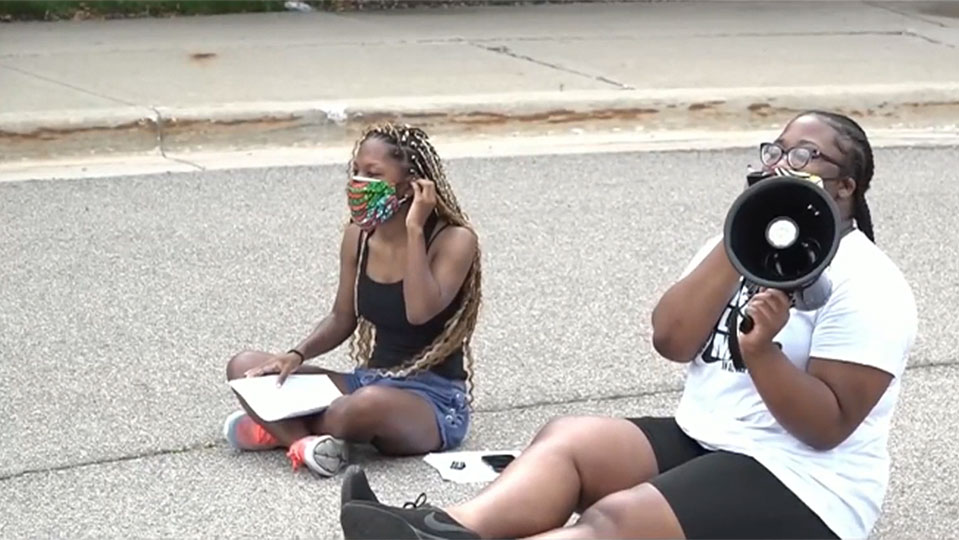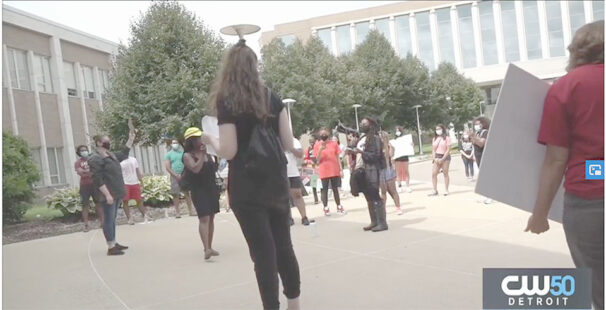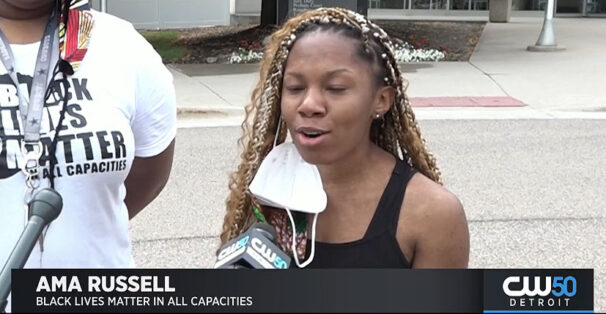
Racism in the U.S. criminal justice system undermines its legitimacy. It raises fears that justice is impossible, especially for people of color. The racist police killings of George Floyd and Breonna Taylor, the attempts (usually with success) by police to cover for the lynchings of Ahmaud Arbery and Trayvon Martin, as well as so many other Black men, Black women, and Black trans and gender queer people have recently foregrounded this criminal injustice.

But a more insidious side of the system operates every day with almost no scrutiny. Inside the courts, prosecutors abuse their power by disproportionately targeting Black defendants. Juries apply different standards of guilt to Black defendants. Judges save their toughest sentences for Black people.
In Oakland County, Michigan, Family Court Judge Mary Ellen Brennan denied a request by the lawyers of a 15-year-old African-American defendant for release from a juvenile detention facility. The judge had sentenced the youth to probation after she was arrested for fighting with her mother in April. One condition of her probation was successful completion of her schoolwork. Grace was arrested and jailed for failing to complete her homework.
In denying her release, the judge told the defendant, “I think you are exactly where you are supposed to be.” The judge indicated that because she failed to complete the assigned homework, the teenager should be locked up.
The actions of this judge and her belief that an imprisoned Black teenager is where she is “supposed to be” reveals the insidious nature of what some scholars have called the “school-to-prison” pipeline that targets African-American youth for incarceration rather than higher education, professional aspirations, and normal inclusion in civil society and its institutions.
According to publicly available data, 15% of Oakland County’s population is Black, while 42% of its imprisoned juveniles are Black. In Michigan, Black youth are incarcerated at four times the rate of their white peers.
In the hearing on the request for early release in late July, lawyers for the defendant were denied the opportunity to argue about the original merits of the imprisonment. Despite the fact that even the prosecutor’s office attempted to side with the defendant’s lawyers, the judge refused to hear their arguments.
In addition, Grace’s mother, the person who made the complaint in the original incident, is one of the strongest advocates for her release. The mother sought to have the teenager released into her custody.

After the hearing, the lawyers for the family released a statement saying they believe the judge acted unfairly. They believe that in order to protect her reputation and to justify an unnecessarily harsh sentence, the judge released superfluous information about Grace’s case and that she deliberately used Grace’s family name in a public setting improperly. The judge’s husband, who is not party to the case, made television appearances attacking the child as dangerous and used language that tried to represent her as an adult criminal.
The order to imprison the child came as Gov. Gretchen Whitmer, due to the risks of spreading COVID-19, has ordered a halt to the detention of minor children unless they pose a “substantial and immediate safety risk to others.”
The family’s statement indicates that they believe the judge released information about the original arrest for fighting with her mother to justify the harsh punishment Grace received as a way to manipulate the details of the case to fit with the Governor’s order.
The family stated that they believe the judge knew or should have known that a student with ADHD like Grace would struggle to complete schoolwork. Indeed, the shift to remote learning during the pandemic meant that Grace had little structure to guide her participation.
In addition, they noted that counseling at the detention facility was inadequate for Grace’s diagnosed mental disability. The family’s statement reads: “Judge Brennan falsely represented to the public that Grace was in a comprehensive ‘mental help’ treatment program. She publicly ‘encouraged’ Grace to complete the program. What Judge Brennan failed to disclose was that this ‘mental help’ program is not developed in such a manner that would prevent Grace from participating in an equivalent or more comprehensive program in her mother’s care.”
In other words, in addition to apparently trying to frame Grace as a “substantial” risk in order to lock her up, the family thinks the judge used deviously crafted language to try to appear compassionate.
Grace’s school, the prosecutor, Grace’s family, and many in the community are on record calling for Grace’s release.
Michigan Liberation, Color of Change, and the Advancement Project have joined together to circulate a petition for Grace’s release. In part, the petition reads: “Grace’s life matters. The school-to-prison pipeline robs too many Black children of their potential ending educational opportunities and cycling them through the criminal legal system.”












Comments